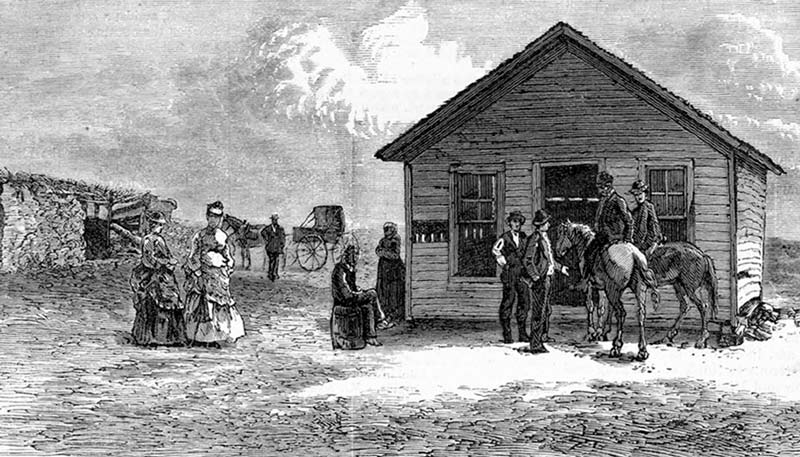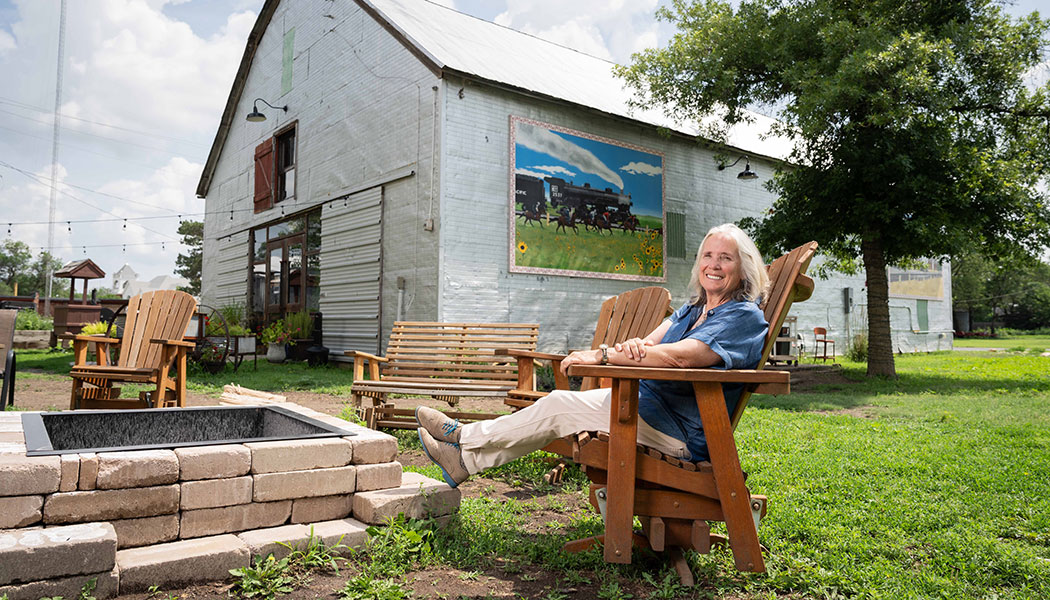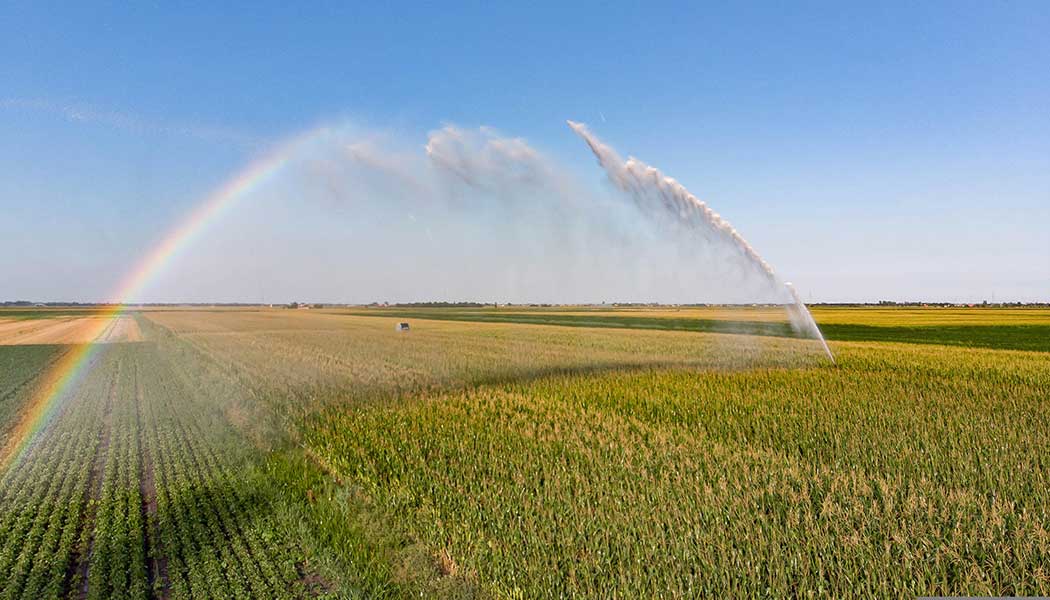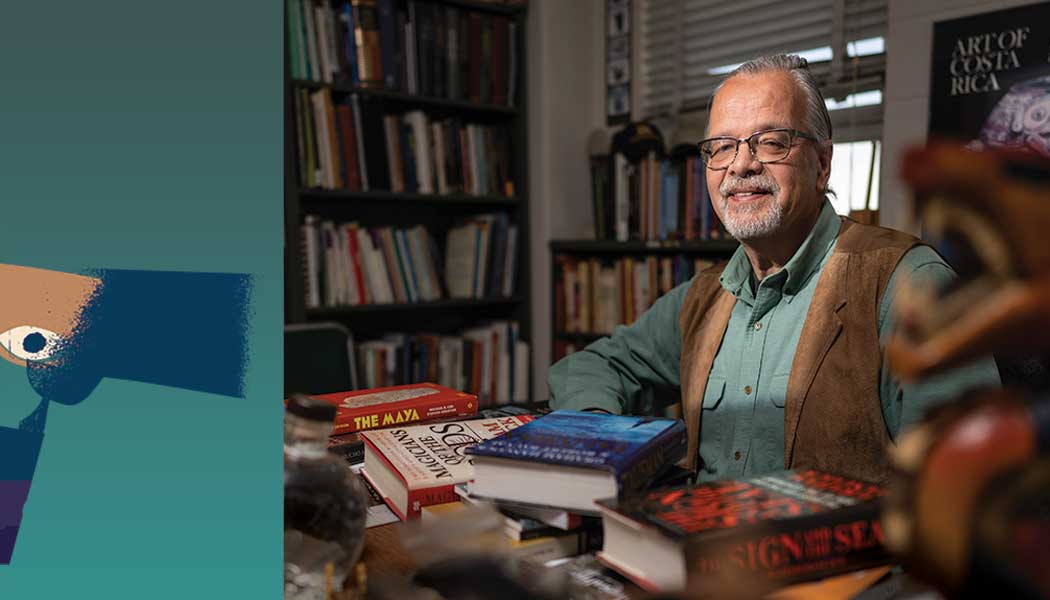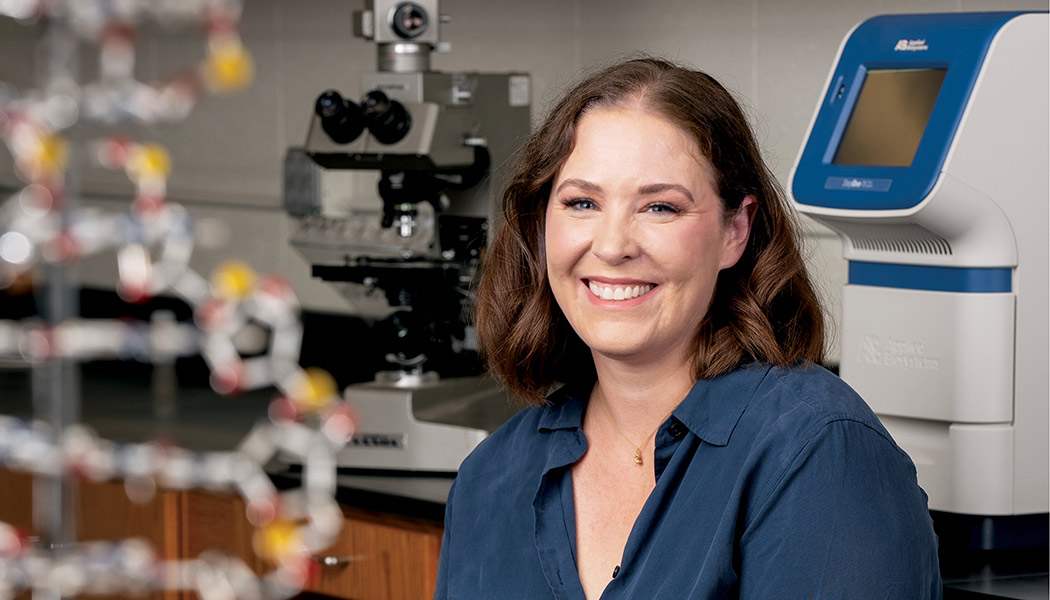‘Heart connection’ draws documentarian to Flint Hills
Former ‘Sunflower Journeys’ host Dave Kendall finds rich lode of stories in Kansas’ prairie region.
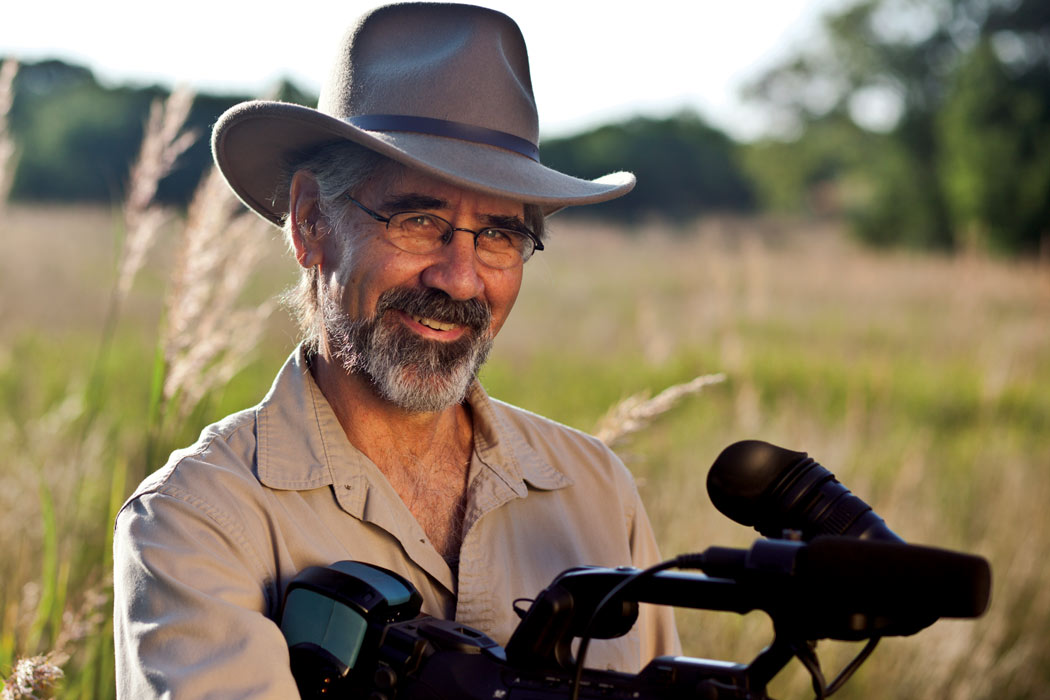
For 27 years, Dave Kendall produced and hosted the popular “Sunflower Journeys” television show broadcast on KTWU, the Public Broadcasting Service (PBS) affiliate in Topeka. In 13 annual episodes, he introduced viewers to interesting people and places across Kansas. Many of those stories focused on one of the state’s most singular regions—the rolling tallgrass prairies of the Flint Hills.
When Kendall, c’76, g’83, decided to strike out on his own in 2015, founding Prairie Hollow Productions, the documentary films he made continued to draw inspiration from the history and culture of the area. The independent production company’s subjects have included the Tallgrass Prairie National Preserve, influential women of the Flint Hills, the historic Santa Fe Trail and, most recently, a comprehensive look at how climate change is affecting the region and the greater Midwest: “Hot Times in the Heartland,” which debuted earlier this year on KTWU and KCPT, Kansas City’s PBS affiliate.
That broad body of work helped earn Kendall the 2024 Friend of the Flint Hills Award in April. Bestowed by the Flint Hills Discovery Center in Manhattan, the honor recognizes people who help advance the organization’s mission of preserving and celebrating the Flint Hills, site of America’s largest remaining expanse of native tallgrass prairie.
“Dave Kendall has provided the microphone and camera lens for years so people can enjoy an audiovisual record of the natural beauty and attraction of the Flint Hills, its people and industries,” Jack Lindquist, Flint Hills Discovery Center Foundation president, said in announcing the award. “His gift of storytelling has and will continue to assist the Flint Hills Discovery Center and Foundation to meet its mission of cultivating a greater passion to value, preserve and protect our native tallgrass prairie and hills for the benefit of all.”
Kendall’s own “greater passion” for the region bloomed after he left Kansas for California in the 1970s.
After studying for three years at Kansas State University, Kendall had transferred to KU. He eventually completed his degree in cultural geography with correspondence courses while living in the Bay Area.
Home on a visit with his family in Herington, where he grew up on a farm his great-great-grandfather homesteaded in the 1850s, Kendall was driving across the Flint Hills on K-4 when he stopped at a scenic overlook to savor the view.
“The contrast between the congestion of the Bay Area and the wide-open rolling hills of the Flint Hills was really notable,” Kendall says. “For me, it was like, ‘Oh, man, I feel more relaxed here.’ It seemed like there was something more grounded about being here.”
He came back to KU to earn a master’s degree in media anthropology. Working with Don Stull and other anthropology faculty, he made his first documentary film, about the Kickapoo Tribe of Kansas, which aired on KTWU. Kendall landed a job with the station and was asked to launch a local show in a magazine format. He and two other producers conceived “Sunflower Journeys” from scratch.
“It was up to the three of us to determine how we would put a series together,” he says. “We needed a host, and neither of the other two guys wanted to do it, so I said, ‘OK, I’ll be the host.’ We didn’t have a staff photographer, so I’d go out and shoot my own standups. I’d set the camera up, walk around in front and do my thing, then rewind and look at it. Kind of clunky, but it got the ball rolling.”
It was a big step for a self-described “shy farm boy,” but Kendall found he enjoyed telling stories about Kansas, and the Flint Hills in particular.
“About that time people were starting to take another look at the Flint Hills and what it has to offer,” he says. The book PrairyErth, by William Least Heat-Moon; a National Geographic photo essay by Jim Richardson; and the launch of the Discovery Center and the annual Symphony in the Flint Hills—which Kendall hosted as master of ceremonies for 11 years—contributed to a growing appreciation for the unique ecosystem, he says.
“I think all these things started putting more of a spotlight on the Flint Hills. More people started recognizing the value of getting out in these open spaces and started developing a sense of reverence about the hills, almost a spiritual connection, a heart connection, with the place.”
The acknowledgment this spring that his own work—at “Sunflower Journeys” and Prairie Hollow Productions—contributed to that growing appreciation feels good.
“I like that idea. It gives me a warm feeling that I am recognized that way,” he says of the Friend of the Flint Hills Award.
But he also hopes that films like “Hot Times in the Heartland,” which looks at the threat climate change poses for the Midwest, can bring people together to preserve the region’s special character.
“I’m using whatever social capital I have, in the sense that I came into people’s living rooms for 27 years,” Kendall says of taking on the divisive issue. “Hopefully they trust I’m not trying to propagandize, but trying to help people understand what’s going on.
“It’s a massive problem, a challenge well beyond the Flint Hills, and it’s like, ‘What can any of us do about this?’ I make documentaries, so I can address it in a documentary that focuses on the local impact of climate change and how people are responding. It just felt like something I could do.”
Steven Hill is associate editor of Kansas Alumni magazine.
Photo by Michael Henry
/
